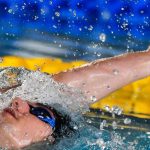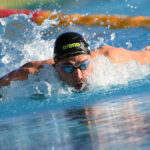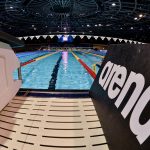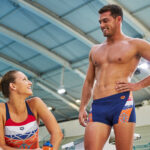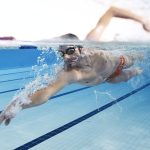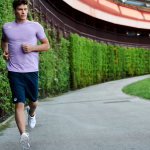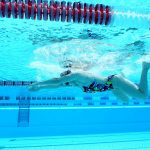A swimmer’s nutrition: when to eat, what to eat and training
One of the main issues concerning a swimmer’s nutrition is what to eat and when to eat it: it is advisable to eat a diet based around small but nutritionally rich meals that differ depending on the time of day the swimmer is training or racing.
A swimmer’s nutritional needs may be broken down as follows:
- 55-60% of calories from carbohydrates (bread, pasta, rice and cereals)
- 25-30% of calories from fats (extra virgin olive oil, fats from milk and dairy products)
- 10-15% of calories from vegetable proteins (legumes) and animal proteins (meat, fish, eggs and cheese)
Vitamins and Mineral Salts come from eating the right amount of fruit and vegetables and supplemented through hydration to make up for any losses through sweating.
Meal times when training and racing
Here are some examples of how to organise your meals in relation to when you are training or racing:
1. in the morning, eat a breakfast that is easily digested at least an hour before physical exertion.
2. in the early afternoon, you cannot have lunch at the usual time, because you would still be digesting your food when you enter the water. This means you should eat a filling breakfast (for example, milk or yoghurt = cereal or biscuits and a piece of fruit), a substantial mid-morning snack (toast and fruit juice) and a light lunch mainly consisting of carbohydrates (rice or pasta).
3. in the late afternoon, breakfast and lunch may be taken at the usual time, having a snack around 4 p.m., such as an energy bar or at a yoghurt containing cereal.
4. after your evening meal, you should split your evening meal into two parts: two hours before entering the water, eat something light like a bowl of pasta with a tomato sauce and then a second protein-based side dish.
Before and after training
It is advisable to eat a snack containing approximately 10-20 g of protein and 1-1.5 g of carbohydrates per kilogram of body weight within 20-30 minutes of finishing your training, particularly if you will not be eating for a while. Some easy options are a sandwich containing some cold meat or ham + a piece of fruit or 100 g of cottage cheese or ricotta cheese or a low-fat yoghurt with cereal or ordinary energy bars.
It is important to note that these are just examples for your information and it is advisable to have a medical check by an expert before going on a special diet.
Written by:
Martina Pica
Dr. Martina Pica, Dietician. I graduated from Pavia University and have been a dietician since 2011, also specialising in sports and clinical/pathological nutrition. I was a swimmer for many years and my love of sport led me to enrol at Turin University, where I am currently studying for a degree in physiotherapy.
